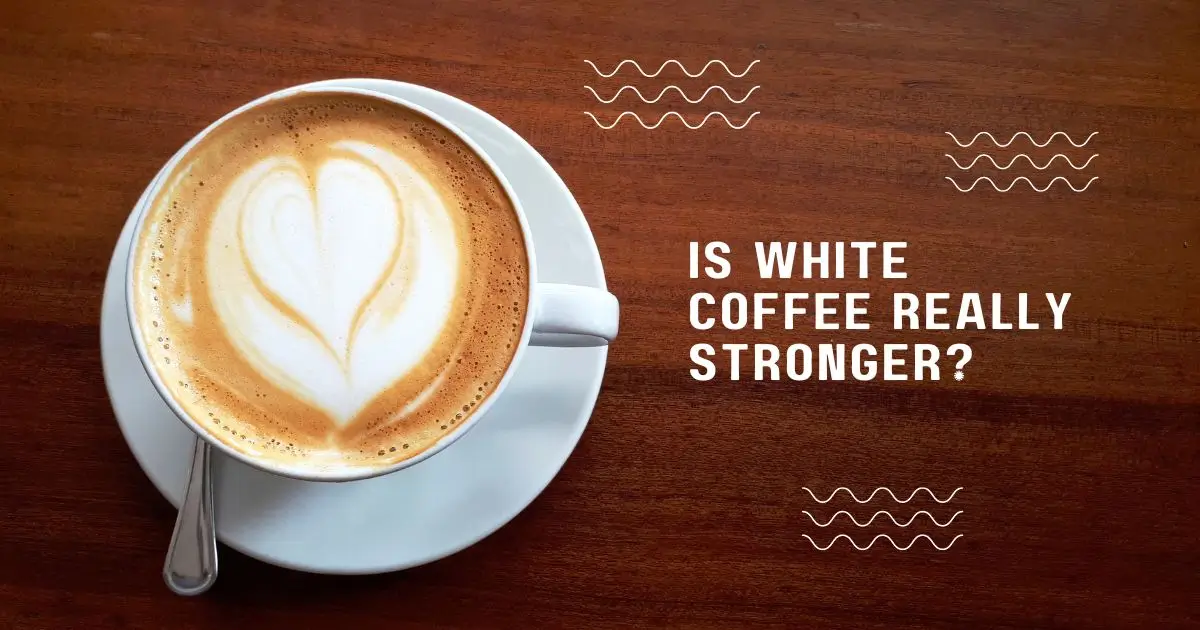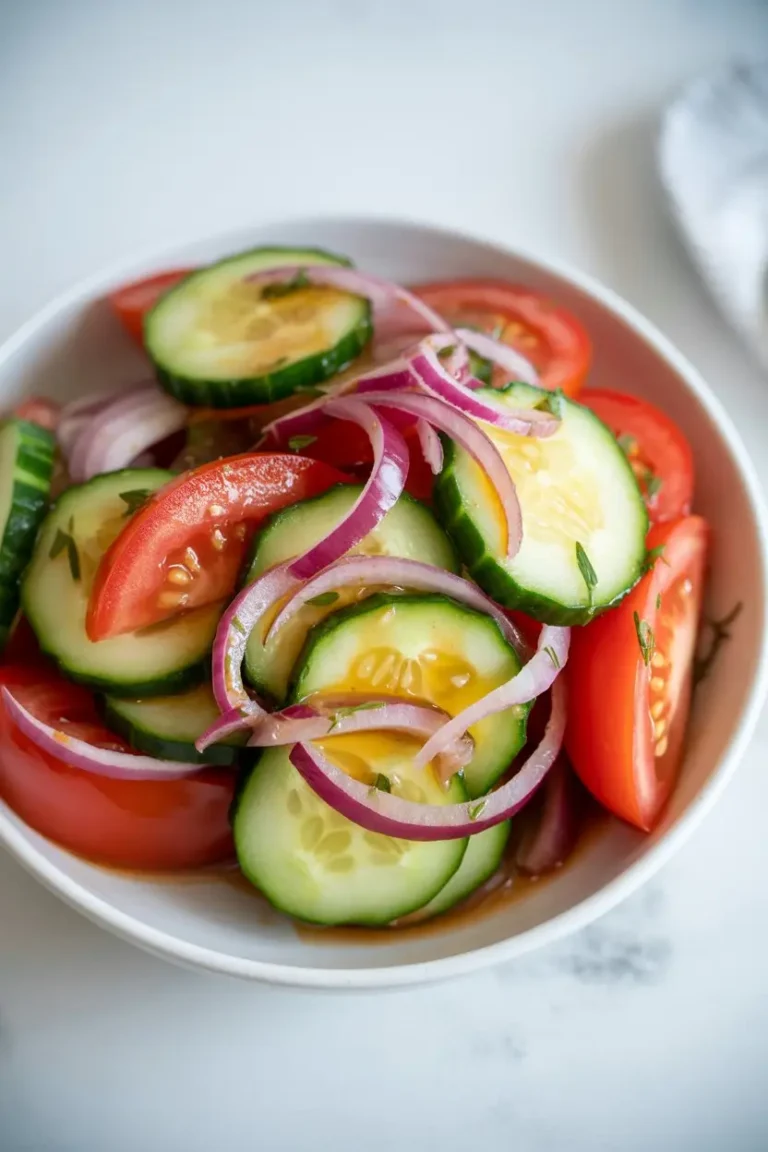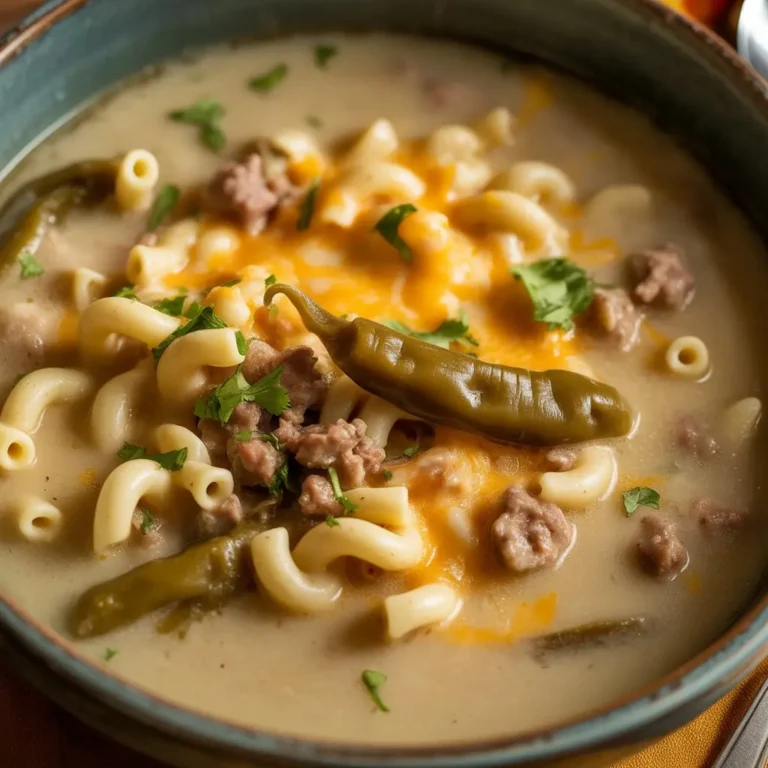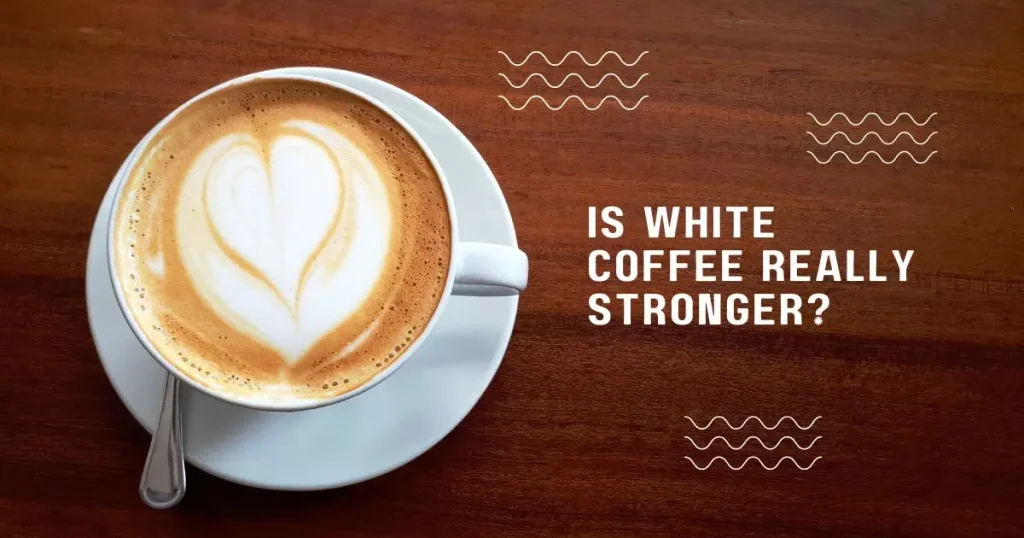
Since white coffee is roasted at a lower temperature for a shorter duration than dark roast coffee, it contains more caffeine. The roasting process burns off some caffeine, so lighter roasts lose less caffeine than darker roasts.
Although some sources say that white coffee may contain up to 50% to 70% more caffeine than regular coffee, this estimate seems exaggerated.
In fact, a study suggests that caffeine content only decreases by approximately 5.4% during the intensive roasting process. Therefore, the difference in caffeine content between white and regular coffee is quite modest.
Read on to know how much caffeine is in white coffee!
How Much Caffeine Is in White Coffee?
| Coffee type | Caffeine content (mg per 8 oz cup) |
|---|---|
| White coffee | 95-130 |
| Drip coffee (regular roast) | 65-120 |
| Espresso | 60-80 |
| Instant coffee | 60-70 |
Note: These are just estimates, and the actual amount in your cup can vary depending on:
- Type of coffee beans used: Some coffee beans naturally have more caffeine than others. A good example is that Robusta beans typically have more caffeine than Arabica beans.
- Roast level: As said, roasting takes some caffeine out of the beans. The lighter the roast, the more caffeine it has.
- Brewing method: Also, different coffee brewing methods extract caffeine differently. For example, espresso tends to be more concentrated in caffeine than drip coffee.
After all, white coffee generally does contain slightly more caffeine than regular coffee. However, the difference is not as significant as some people believe. In general, white coffee may have 5-10% more caffeine than regular coffee.
Is White Coffee Good For You?
Yes, due to the fact that white coffee has more antioxidants and some say it is less acidic as well. And also, there’s no need to worry about white coffee’s caffeine level. As many sources suggest, one can safely consume 200 to 400 milligrams of caffeine a day.
Aside from that, white coffee comes with some benefits you might not know about, like:
- White coffee retains more chlorogenic acid, a powerful antioxidant with anti-inflammatory and cell-protective properties. Some studies suggest it can reduce the risk of chronic diseases like heart disease, diabetes, and certain cancers.
- Additionally, chlorogenic acid in white coffee may promote satiety, regulate blood sugar levels, and boost metabolism.
- Like regular coffee, white coffee contains caffeine, a stimulant that can enhance alertness, focus, and physical performance.
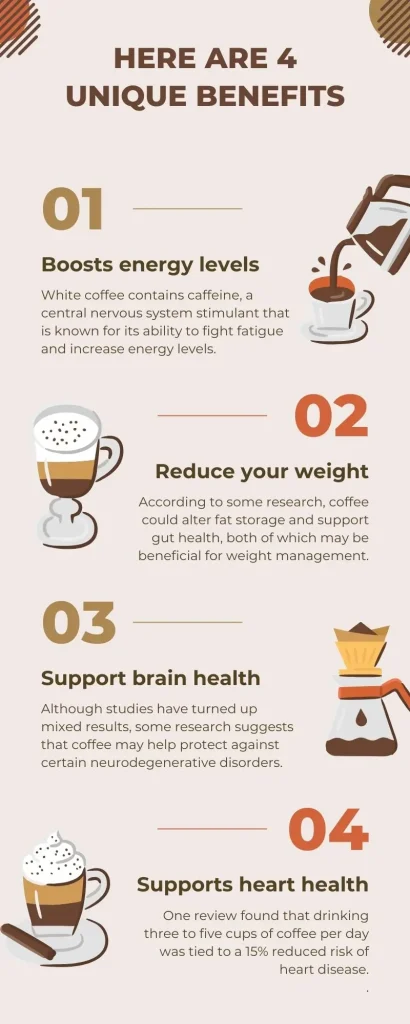
How to Make White Coffee at Home?
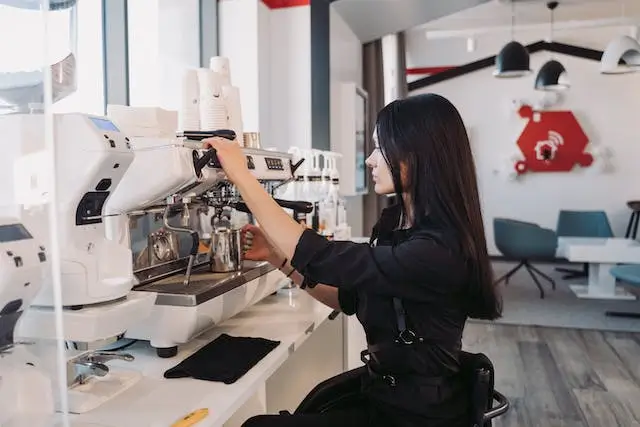
White coffee is easy to make at home if you have the right equipment and the right method. It is best brewed with an espresso machine for consistency, quality, and control. Once you’ve got the espresso machine, follow these steps:
- First, you’ll need a fine grind the coffee beans, similar to espresso.
- After that, tamp the coffee firmly into the portafilter.
- Then take 1-2 shots of espresso and pour them into your cup (for a flat white or a cortado, this is normally 1-2 shots).
- To make a milky white coffee, steam your milk (whole milk works best).
- When you’re done, pour the steamed milk over your espresso.
Why Is White Coffee Bitter?
So, some of you may had a bitter experience with the drink. As the above video shows, darker roasts and longer roasting times lead to increased bitterness.
This is also because of the origin of the beans used in making it. These are beans that mainly originate from Brazil and come with more of a savory flavor.
And then, there is also the method of preparation that you have to consider. The coffee may be made in a French press rather than a drip coffee maker.
Read more: What Does Ristretto Mean at Starbucks?
Final Thoughts
So, hope you now know how much caffeine is in white coffee. And the secret to enjoying white coffee is to add only a little cream or milk.
While it is true that white coffee contains a little more caffeine than black coffee, this is where its beauty lies and makes it so favorable over black coffee. Also, it does not stain your teeth as much as black coffee does.
Note: Especially if you have any underlying health conditions, consult your doctor before drinking white coffee. Remember, moderation is key, and enjoy your coffee responsibly!
Frequently Asked Questions
Q1. How Much Mg Of Caffeine Does White Coffee Have?
Ans: White coffee’s caffeine content varies depending on a few things, but it’s typically 95-110mg for an 8oz cup and 60-80mg for an espresso shot.
Q2. Is White Coffee Just Milk?
Ans: No, it does contain some caffeine, though you may not have felt it as a regular coffee drinker. This is because it can taste more like a latte (but with much less milk) with espresso, steamed milk, and some foam on top. The foam here is also much less than in a regular latte.
Q3. How Much Milk Is In White Coffee?
Ans: A cup of white coffee generally contains about 140 to 180 ml of milk.
Q4. Is White Coffee Real Coffee?
Ans: Yes, white coffee is made with coffee beans, just like any other coffee. Here the roasting happens at a much lower temperature, and in the process, you get a sweet flavor that makes the drink unique. Here the beans are roasted for half the time you would for regular coffee, which means they are half-baked at 325 degrees.
Q5. Why Is White Coffee Expensive?
Ans: The simple answer to this question is that white coffee is not as readily available as black coffee, which is often found anywhere. This is again because white coffee beans are not as common as their black counterparts found in almost every estate worldwide.

